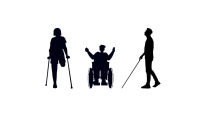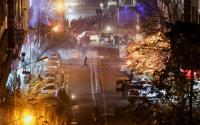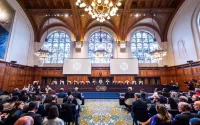6 September 2005
Last week, I took a six-hour drive south to New York City on a day when New Orleans had just gone under water and the President was stumbling to address the nation. The headlines on the morning paper I tossed in the front seat next to me read: "New Orleans Is Inundated As 2 Levees Fail; Much of Gulf Coast Is Crippled; Toll Rises."
I began my day by pulling into a local gas station where I found myself paying $2.67 a gallon for regular unleaded -- in two pit stops that day, I would pour over fifty bucks into the tank of my recently purchased 2003 Subaru Outback. Regretting that I didn't have a Prius, I still felt like a low-level lottery winner, like the last customer to stumble upon a bargain that would never again exist. (Twenty-four hours later, my wife would report that the same station had the same gas for $2.93 -- up 22 cents and rising like mercury on a hot day.)
There's nothing like six hours alone in a car to focus the brain -- especially a brain beginning to think that, not so many years down the road, being alone in a car, eating energy all by yourself might be considered the ultimate luxury. While distant New Orleans was being transformed into the city of our nightmares, I glided past a settled world at 65 miles an hour (except for the normal bottlenecks at Providence and New Haven). All of it, the rest-stops, McDonalds, billboard ads, urban skylines, lakes dotted with ducks and swans, water tanks, roadside multiplexes, and even the road kill, still held the calm of stability and the known. And yet in New Orleans that known was already long gone, swept away in a day or two with everything that makes our civilization click -- telephones, televisions, computers, water, electricity, gas, jobs, family photos, food, clothes -- you name it, gone in the roaring flicker of a single great storm and the human-made catastrophe that followed. (If global warming fears are correct, of course, even that storm was, in part, human-made.) What Todd Gitlin has called "the torrent" (of images) that is the essence of our civilization had been wiped away in a wide swathe of the southeastern United States by a literal torrent.
Have you ever felt you were in two moments at once? It was surprisingly eerie, really. There I was, watching a world I knew well go by, no different than ever, and I felt as if I were slipping effortlessly through some future Pompeii, a landscape that will sooner or later be under water (or the equivalent) and so unimaginable to our children's children.
I'm 61 years old. My friend's 88 year-old mother was evacuated from New Orleans to Houston as Katrina approached, 16 hours-plus bumper-to-bumper, city-to-city -- and she had it easy; at least she had a car to get out and the financial means as well as the support system to remain out. Her daughter and I had just been talking about the possibility that she might never return to the world she had known all her life. She's a remarkable woman and a trouper. I wondered how I might react. Not well, I fear. It's hard indeed, if you're not there (perhaps even if you are), imagining this world, your world, underwater.
All the obvious phrases were wandering through my brain -- "fiddling while Rome burns...," "après moi, le deluge..." -- and what I was thinking as well was that, if we don't begin to prepare soon for what we know is coming, if we don't do something to mitigate it, we or our children or their children are going to end up abandoning lives as precipitously, and in at least as much chaos, as the inhabitants of New Orleans.
Between the ever more horrific news reports and the stumbling, slurring comments of our Great Leader who was promising that ice (yes, ice by the ton) was on the way, I happened to be listening to Cole Porter songs on the car CD (one of the many modern technologies I can barely handle and yet that, like the computer, the cell phone, the vcr, and the car, are inextricably wound into and bound up with my life). Porter's fabulous lyrics -- those oysters down in Oyster Bay just kept doing it again and again as I hit the repeat button -- left me nostalgic for what was truly lovely in the world we might, one of these unexpected days or weeks or years, simply be leaving behind. What a world of horror and wonder, all bound together and so unbearably easy (as anyone who has lived through an urban blackout knows) to unravel.
And then at the other end of my journey, as it happened, lay the promise of this piece by Bill McKibben, an environmental writer I've long admired, who wrote the first book on global warming for a general audience and is most recently the author of Wandering Home, A Long Walk Across America's Most Hopeful Landscape.
. It goes right to the heart of our new world which is being reordered as we fiddle on a planet that threatens to become the new New Orleans. Tom
Sucker's Bets for the New Century
The U.S. after KatrinaBy Bill McKibbenIf the images of skyscrapers collapsed in heaps of ash were the end of one story -- the U.S. safe on its isolated continent from the turmoil of the world -- then the picture of the sodden Superdome with its peeling roof marks the beginning of the next story, the one that will dominate our politics in the coming decades of this century: America befuddled about how to cope with a planet suddenly turned unstable and unpredictable.
Over and over last week, people said that the scenes from the convention center, the highway overpasses, and the other suddenly infamous Crescent City venues didn't "look like America," that they seemed instead to be straight from the Third World. That was almost literally accurate, for poor, black New Orleans (whose life had never previously been of any interest to the larger public) is not so different from other poor and black parts of the world: its infant mortality and life expectancy rates, its educational achievement statistics mirroring scores of African and Latin American enclaves.
But it was accurate in another way, too, one full of portent for the future. A decade ago, environmental researcher Norman Myers began trying to add up the number of humans at risk of losing their homes from global warming. He looked at all the obvious places -- coastal China, India, Bangladesh, the tiny island states of the Pacific and Indian oceans, the Nile delta, Mozambique, on and on -- and predicted that by 2050 it was entirely possible that 150 million people could be "environmental refugees," forced from their homes by rising waters. That's more than the number of political refugees sent scurrying by the bloody century we've just endured.
Try to imagine, that is, the chaos that attends busing 15,000 people from one football stadium to another in the richest nation on Earth, and then multiply it by four orders of magnitude and re-situate your thoughts in the poorest nations on earth.
And then try to imagine doing it over and over again -- probably without the buses.
Because so far, even as blogs and websites all over the Internet fill with accusations about the scandalous lack of planning that led to the collapse of the levees in New Orleans, almost no one is addressing the much larger problems: the scandalous lack of planning that has kept us from even beginning to address climate change, and the sad fact that global warming means the future will be full of just this kind of horror.
Consider the first problem for just a minute. No single hurricane is "the result" of global warming. But a month before Katrina hit, MIT hurricane specialist Kerry Emmanuel published a landmark paper in the British science magazine Nature showing that tropical storms were now lasting half again as long and spinning winds 50% more powerful than just a few decades before. The only plausible cause: the ever-warmer tropical seas on which these storms thrive. Katrina, a Category 1 storm when it crossed Florida, roared to full life in the abnormally hot water of the Gulf of Mexico. It then punched its way into Louisiana and Mississippi -- the latter a state now governed by Haley Barbour, who in an earlier incarnation as a GOP power broker and energy lobbyist helped persuade President Bush to renege on his promise to treat carbon dioxide as a pollutant.
So far the U.S. has done exactly nothing even to try to slow the progress of climate change: We're emitting far more carbon than we were in 1988, when scientists issued their first prescient global-warming warnings. Even if, at that moment, we'd started doing all that we could to overhaul our energy economy, we'd probably still be stuck with the 1 degree Fahrenheit increase in global average temperature that's already driving our current disruptions. Now scientists predict that without truly dramatic change in the very near future, we're likely to see the planet's mercury rise five degrees before this century is out. That is, five times more than we've seen so far.
Which leads us to the second problem: For the ten thousand years of human civilization, we've relied on the planet's basic physical stability. Sure, there have been hurricanes and droughts and volcanoes and tsunamis, but averaged out across the Earth, it's been a remarkably stable run. If your grandparents inhabited a particular island, chances were that you could too. If you could grow corn in your field, you could pretty much count on your grandkids being able to do likewise. Those are now sucker's bets -- that's what those predictions about environmental refugees really mean.
Here's another way of saying it: In the last century, we've seen change in human societies speed up to an almost unimaginable level, one that has stressed every part of our civilization. In this century, we're going to see the natural world change at the same kind of rate. That's what happens when you increase the amount of heat trapped in the atmosphere. That extra energy expresses itself in every way you can imagine: more wind, more evaporation, more rain, more melt, more... more... more.
And there is no reason to think we can cope. Take New Orleans as an example. It is currently pro forma for politicians to announce that it will be rebuilt, and doubtless it will be. Once. But if hurricanes like Katrina go from once-in-a-century storms to once-in-a-decade-or-two storms, how many times are you going to rebuild it? Even in America there's not that kind of money -- especially if you're also having to cope with, say, the effects on agriculture of more frequent and severe heat waves, and the effects on human health of the spread of mosquito-borne diseases like dengue fever and malaria, and so on ad infinitum. Not to mention the costs of converting our energy system to something less suicidal than fossil fuel, a task that becomes more expensive with every year that passes.
Our rulers have insisted by both word and deed that the laws of physics and chemistry do not apply to us. That delusion will now start to vanish. Katrina marks Year One of our new calendar, the start of an age in which the physical world has flipped from sure and secure to volatile and unhinged. New Orleans doesn't look like the America we've lived in. But it very much resembles the planet we will inhabit the rest of our lives.
Bill McKibben is the author of many books on the environment and related topics. His first, The End of Nature, was also the first book for a general audience on global warming. His most recent is Wandering Home, A Long Walk Across America's Most Hopeful Landscape.






